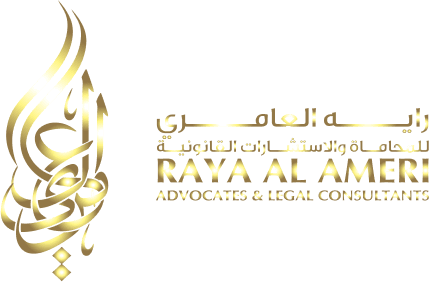The Pioneering Balance: Sharia and Modernity in UAE Inheritance Law
Inheritance Rights of Women: A Comprehensive Guide to Navigating Legal Labyrinths
In the heart of the United Arab Emirates (UAE), the complex web of family legacies is guided by the UAE Inheritance Law. This legal framework ensures the fair and equitable distribution of wealth among family members when someone passes away. Whether you’re a resident or a visitor, understanding the nuances of UAE Inheritance Law is not just important—it’s a commitment to maintaining family unity and prosperity.
Key Takeaways
- Islamic Principles: The UAE inheritance law is deeply rooted in Islamic teachings.
- Equity and Justice: The law aims to establish fairness in wealth distribution.
- Applicability: The law applies to all individuals, regardless of nationality or religion, who have assets in the UAE.
The Foundation: Sharia Principles
The cornerstone of UAE inheritance law lies in Islamic principles, specifically those found in the Quran and the teachings of Prophet Muhammad. Sharia law serves as the backbone of this legal system, orchestrating the allocation of assets among family members.
At its core, the UAE’s legal framework finds its strength in Sharia law, meticulously directing the just allocation of assets among family members. Here are the main key points:
- Islamic Principles: UAE inheritance law is deeply influenced by Islamic principles, specifically derived from the Quran and the teachings of Prophet Muhammad.
- Sharia Law: Sharia law forms the foundation of the UAE’s legal system in matters of inheritance, ensuring the just distribution of assets within families.
- Equity and Justice: The primary goal of Sharia law within the UAE inheritance system is to establish fairness and justice when dividing wealth among heirs.
Watch this video for more insights
Inheritance Laws for Muslims
Sharia provisions for Muslim inheritances are intricate, comprising over 40 articles. Moreover, Sharia also restricts the allocation of assets according to specific rules. The presence of witnesses and documentation is crucial.
Preliminary Steps
Before diving into the details, it’s essential to consider several critical aspects:
- Funeral Expenses: Addressing the deceased’s funeral costs is the first step.
- Outstanding Debts: Settling any financial obligations of the deceased is another fundamental consideration.
Asset Inventory
Creating an inventory of the deceased’s assets is vital. This includes documenting all properties, financial accounts, investments, and personal belongings.
|
Asset Type |
Documentation Required |
|
Property |
Property Deeds |
|
Financial Accounts |
Bank Statements |
|
Investments |
Investment Portfolios |
Watch this video for a detailed explanation
Forced Inheritance in the UAE
UAE inheritance law, rooted in Sharia principles, enforces a structured system of forced inheritance distribution. Article 321 of the law specifies predetermined shares for specific heirs, prioritizing their inclusion. One essential rule is found in Article 321 of UAE’s inheritance law.
This rule sets fixed amounts for certain family members, making sure they get their fair share of the inheritance. The idea is to look after the financial well-being of specific family members.
The concept of forced inheritance distribution in UAE inheritance law, which are based on Sharia principles, in a more straightforward manner:
- Structured Forced Inheritance Distribution:
In the UAE, when someone passes away, their assets need to be shared among family members fairly. To make sure this happens, the country has strict rules rooted in Islamic principles.
- Prioritizing Certain Family Members:
Article 321 gives special importance to certain family members, like spouses, children, and parents. These folks are called primary heirs, and they get a set portion of the inheritance as per the law. This helps make sure they’re financially secure.
- Protecting Family Interests:
The whole point of this rule is to protect the interests of primary heirs. It ensures that they don’t miss out on what they should rightfully get from the inheritance. This protection is super important to avoid family fights and make sure everyone gets their fair share.
- Keeping the Family Together:
By setting clear rules for primary heirs, UAE inheritance law aims to keep the peace in families. It reduces the chances of arguments over who gets what. This way, family relationships can stay strong and happy.
Structured Forced Inheritance
In the UAE, assets need to be shared among family members fairly, based on strict rules rooted in Islamic principles.
Prioritizing Family Members
Article 321 gives special importance to certain family members, like spouses, children, and parents. These individuals are called primary heirs, and they get a set portion of the inheritance as per the law.
Watch this video to understand better
Protecting Family Interests
The whole point of this rule is to protect the interests of primary heirs, ensuring they receive their rightful share of the inheritance.
Applicability of the Law
The UAE inheritance law extends its jurisdiction to all individuals, irrespective of their nationality or religion, who possess assets within the country. This means that even non-Muslims are bound by the provisions of this law concerning assets located within the UAE.
Opting for Home Country Laws
However, non-Muslims have the option to opt for the laws of their home countries to govern asset distribution, provided they have a legally recognized will.
Inheritance Laws for Non-Muslims
Non-Muslims in the United Arab Emirates , inheritance proceedings are regulated by Federal Decree-Law No. 41 of 2022, commonly referred to as the Civil Personal Status Law.
Specific Provisions
- Spouse and Children: Half of the inheritance is allocated to the surviving spouse, while the remaining half is divided equally among the children.
- No Children: If there are no children, half of the inheritance goes to the spouse, and the other half is equally shared between the deceased’s parents.
- One Surviving Parent: In the event of only one surviving parent, half of the inheritance is granted to the spouse, and the remaining half is divided between the surviving parent and siblings of the deceased.
- No Surviving Parents: When there are no surviving parents, all of the inheritance is divided equally among the deceased’s siblings.
Despite the clarity of the UAE inheritance law, disputes and challenges can emerge. These disputes may arise from conflicting interpretations of Sharia law, familial disagreements, or the presence of assets outside the UAE. Resolving inheritance disputes often necessitates legal intervention and the expertise of specialized lawyers well-versed in inheritance law.
Some main challenges and disputes in inheritance cases in the UAE:
- Interpretation of Sharia Law:
Different interpretations of Sharia law among family members can lead to disputes over asset distribution.
- Familial Disagreements:
Personal conflicts, rivalries, and disagreements among heirs can complicate inheritance cases.
- Assets Outside the UAE:
Assets located outside the UAE may be subject to different inheritance laws, potentially leading to conflicts.
- Complex Family Structures:
Complicated family structures, including multiple marriages and stepchildren, can contribute to disputes.
- Lack of Clarity in Wills:
Vague or unclear wills can create confusion and disputes among heirs regarding the deceased’s intentions.
- Undue Influence:
Allegations of undue influence, coercion, or manipulation in the creation of a will can result in legal challenges.
- Legal Intervention:
Inheritance disputes may require legal intervention and court proceedings to resolve, which can be time-consuming and costly.
- Asset Valuation:
Determining the value of assets and how they should be divided can be contentious in complex inheritance cases.
- Emotional Factors:
Emotional factors such as jealousy, resentment, or perceived unfairness can play a significant role in inheritance disputes.
- International Dimension:
Cases involving heirs residing in different countries may involve complex international legal considerations.
Estate Planning and Wills
To ensure assets are allocated according to their preferences, individuals in the UAE can establish a will that outlines specific asset distribution instructions.
Importance of Wills
A will empowers individuals to deviate from Sharia law’s default distribution rules, tailoring the allocation to their unique desires.
Joint Ownership and Survivorship Rights
In the UAE, joint ownership of assets, such as properties and bank accounts, is common. Jointly owned assets may be subject to survivorship rights, where, upon one joint owner’s demise, ownership automatically transfers to the surviving joint owner(s).
Ramifications for Asset Distribution
This can have implications for asset distribution as per the inheritance law, as survivorship rights may supersede the default distribution rules.
Contact Us for Expert Assistance:
When it comes to navigating the complexities of inheritance issues in the UAE, Raya al Ameri’s team of professional legal advocates is here to assist you. With their expertise and in-depth knowledge of UAE’s inheritance laws, they will make the entire procedure smooth and hassle-free.
To get in touch with our legal experts and book an appointment, you can reach us at +97145786050 or send us an email at info@emirates.law. We are dedicated to ensuring that your inheritance matters are handled with precision and care.

